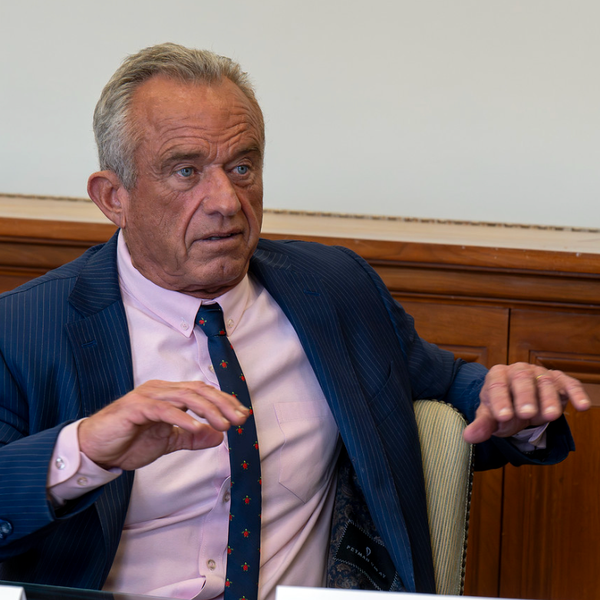Obama’s decision to intervene in Libya without launching a full-scale attack perplexed Republicans, who first accused him of being too willing to involve the U.S. in an unnecessary war and then accused him of being too willing to let other countries take the lead in supporting the Libyan rebels. Obama dismissed the criticism, confident that his plan to “lead from behind” by quietly contributing American air support to a NATO coalition could succeed. The Libyan rebels’ recent success shows that his strategy worked, and the Republicans’ baseless criticism missed the point.
The Republicans viewed the United States’ participation in a coalition led by NATO troops as disrespectful to American exceptionalism — the idea that America is the greatest and most powerful nation in the world, and as such has a duty to make the world more like it. Republicans quickly stereotyped him as being at best naive and at worst anti-American, for allowing other countries — especially European countries — to lead the NATO operation supporting Libyan rebels.
“In the past,” Romney explained to a conservative radio host, “America has been feared sometimes, has been respected, but today, that America is seen as being weak.” The sign of America’s weakness? “We’re following the French into Libya.” Romney goes on to say that while he French involvement, “but I think we look to America to be the leader of the world.”
Romney’s fellow Republican presidential candidate Michele Bachmann expressed a similar view. Like Romney, she seemed almost offended that the United States worked with other countries instead of just telling them what to do. “We are the head,” she argued in a New Hampshire presidential debate, “we are not the tail. The president was wrong. All we have to know is the president deferred leadership to France.”
The fact that France was leading the coalition while the United States was a mere member embarrassed conservatives. They do not want true international cooperation, but a “coalition of the willing” in which the U.S. does whatever it wants and orders countries follow. Romney, for one, could not understand how Obama could both want Gadhafi gone and be willing to defer to international institutions. The president, he said, “calls for the removal of Moammar Gadhafi but then conditions our action on the directions we get from the Arab League and United Nations.” He saw no reason to take direction from international institutions unless they would rubber stamp everything the U.S. did.
The chief concern of Republicans was that the United States, by refusing to directly intervene in Libya or take control of the NATO coalition, would inevitably face defeat. Of course, that’s not what happened. Even though the U.S. stuck to its limited support role, Libyan rebels successfully drove Gadhafi from power. But that has not stopped Republican critics from attacking the president. Presidential candidate Rick Santorum recently released a statement arguing that “ridding the world of the likes of Gadhafi is a good thing, but this indecisive President had little to do with this triumph.”
Now that Republicans’ fears that Obama’s approach to Libya will result have defeat have been disproven, they’ve begun arguing that the war could have been over much faster if Obama had intervened more aggressively in Libya. But this misses a key advantage of Obama’s “lead from behind” strategy: legitimacy, Because the intervention was supported by the Arab League and the U.N., and the U.S. did not insist on leading the rebels, the rebels’ cause seems genuine. Had the U.S. insisted on leading the rebels, Gadhafi and his allies could easily have characterized them as American pawns who did not care about Libya. As Anne Applebaum explains:
The rebels who just marched into Tripoli and waved at Al-Jazeera’s cameras looked like a Libyan force, not a Western one — because they were. The images of them stomping on Gaddafi’s photograph looked a lot more authentic, and will play better in Libya and across the Arab world, than did the images of Marines pulling down a statue of Saddam Hussein in 2003, an American flag draped over his head.
Republicans might believe that the Arab dictators can only be deposed through excessive American military force, but Obama has demonstrated in Libya that there is a better way. The United States can support freedom-minded rebels without turning their struggle into an American war. Republicans who think “leading from behind” is weak don’t appreciate its real power.








